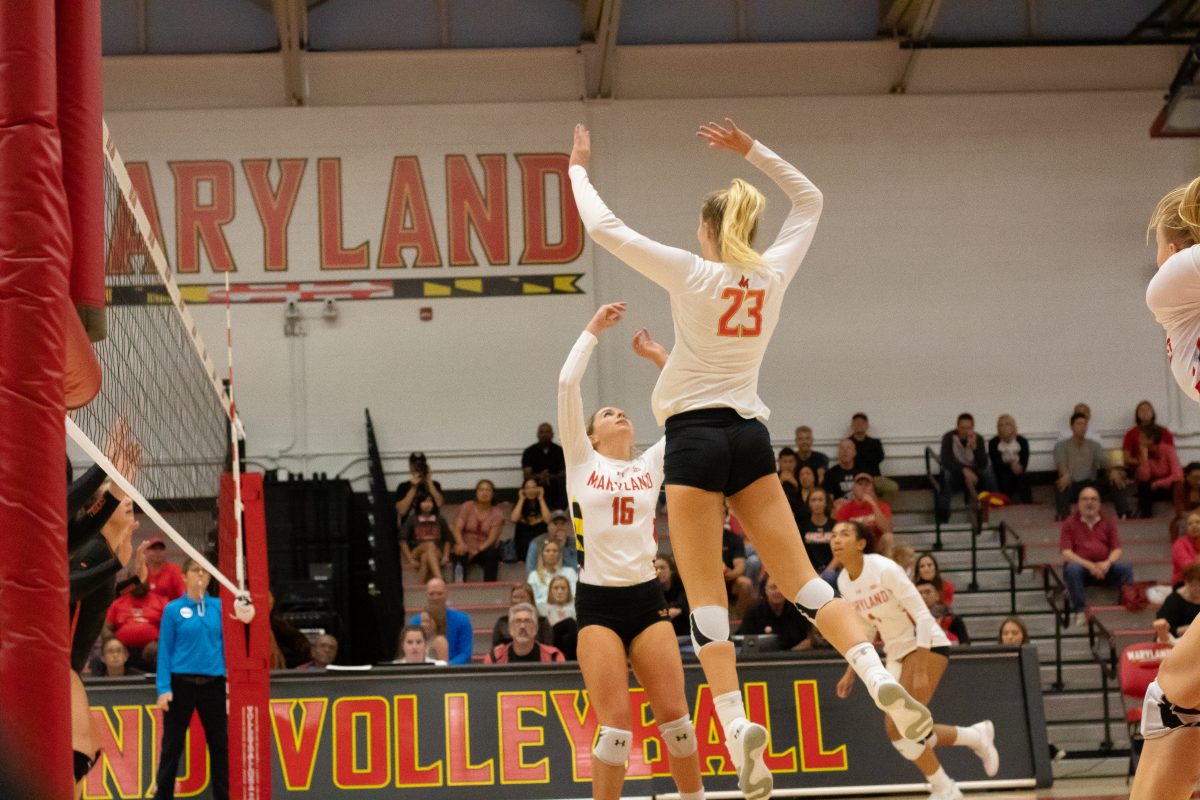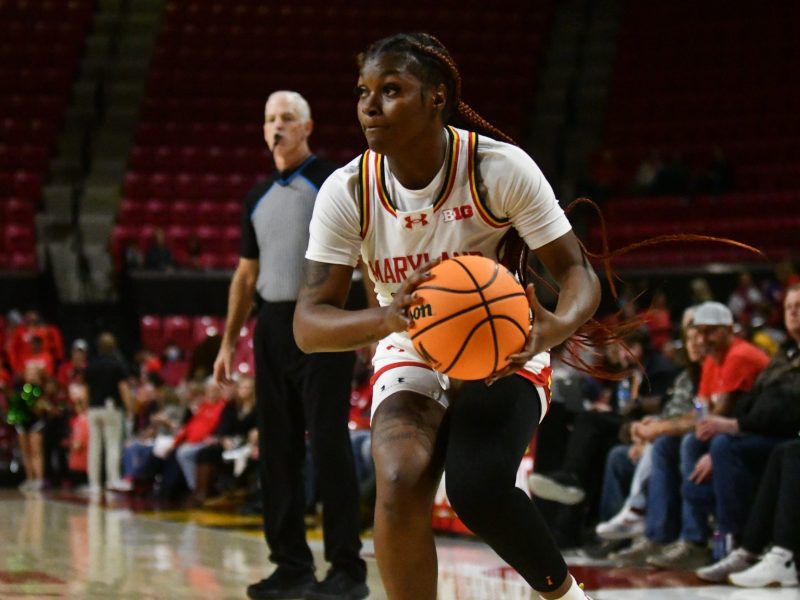After Maryland volleyball concluded practice Tuesday, middle blocker Rainelle Jones told coach Adam Hughes she was going to attend the men’s basketball game. But Jones made sure to let her coach know she would study for an hour beforehand.
Hughes called it “music to [his] ears.”
Jones’ time management is exactly what Hughes is looking for out of his players during a particularly challenging stretch of the season.
With a grueling Big Ten slate and the academic semester in full swing, the program puts extra emphasis on making sure each player is equipped to handle the balancing act of being an athlete while dealing with the rigors of school.
“It’s something that we always have to look at, especially during weeks where there are lots of exams,” Hughes said.
[Read more: Without Nicole Alford, Maryland volleyball couldn’t get in rhythm against Ohio State]
While it’s not Hughes’ primary responsibility to provide academic support for his players, he gets full grade reports once per week at the volleyball program’s all-staff meetings on Tuesdays.
Kyle Thompson, director of volleyball operations, works on classroom performance, along with academic support liaison Heather Arianna. Hughes credits Thompson for all that he does for the athletes off the volleyball court, including academic support.
“This is Kyle’s expertise,” Hughes said. “He’s not allowed to have any conversations about volleyball-specific things, but he genuinely cares about college athletics.”
Fortunately for the players, there are no weekday matches during the nonconference season, so the travel schedule doesn’t interfere with classes for the most part until conference play. The players describe the nonconference season as more physically demanding, while Big Ten play is more stressful in terms of academics.
[Read more: For Maryland volleyball’s Rebekah Rath, the Big Ten gauntlet has been a learning curve]
On a regular weekday without a match, players come into the training facilities at Xfinity Center mid-afternoon and leave during the early evening. They’ll also come in periodically for physical treatments and film review.
Although time management can be a challenge for some student-athletes, each volleyball player has her own approach to allocating time for schoolwork during the season.
“It’s definitely tough,” middle blocker Katie Myers said. “For me, I like to wake up in the morning and get as much schoolwork done, so I don’t have to worry about it after practice.”
On Oct. 11, Maryland men’s soccer coach Sasho Cirovski — in conjunction with eight other coaches — delivered a letter to the NCAA Division I Council urging it to spread the men’s soccer season over two semesters, partly to alleviate academic conflicts and stress.
While Hughes doesn’t believe women’s volleyball would ever go beyond the single-semester model, he and the American Volleyball Coaches Association are seeking ways to make life easier for women’s volleyball players.
“The AVCA is looking into condensing the season in terms of number of matches you’re allowed to play,” Hughes said. “The thought would be that we could spread some of the matches out for student-athlete welfare.”
For right now, the Terps have to work with the current schedule that’s in place. So they continue to prioritize schoolwork whenever they’re not in the gym, trying their best to balance on and off the court responsibilities while keeping them distinct.
“I think a good student-athlete takes care of academics but doesn’t worry about that stuff during practice,” Myers said. “That’s tough to do this time of year.”



